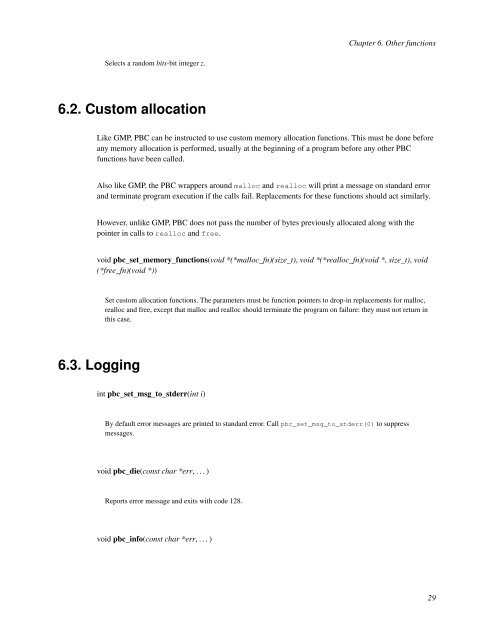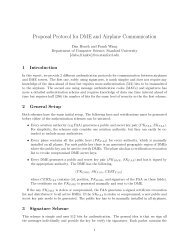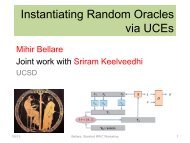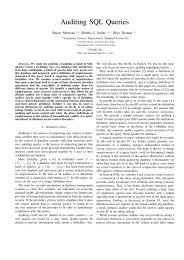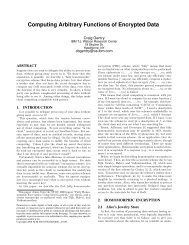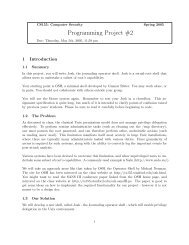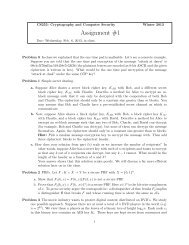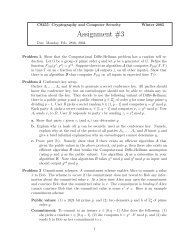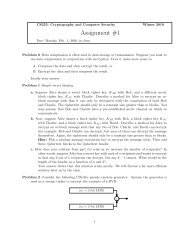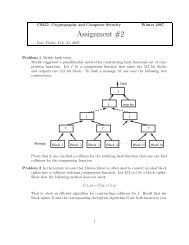PBC Library Manual 0.5.11 - Stanford Crypto Group
PBC Library Manual 0.5.11 - Stanford Crypto Group
PBC Library Manual 0.5.11 - Stanford Crypto Group
You also want an ePaper? Increase the reach of your titles
YUMPU automatically turns print PDFs into web optimized ePapers that Google loves.
Selects a random bits-bit integer z.<br />
6.2. Custom allocation<br />
Chapter 6. Other functions<br />
Like GMP, <strong>PBC</strong> can be instructed to use custom memory allocation functions. This must be done before<br />
any memory allocation is performed, usually at the beginning of a program before any other <strong>PBC</strong><br />
functions have been called.<br />
Also like GMP, the <strong>PBC</strong> wrappers around malloc and realloc will print a message on standard error<br />
and terminate program execution if the calls fail. Replacements for these functions should act similarly.<br />
However, unlike GMP, <strong>PBC</strong> does not pass the number of bytes previously allocated along with the<br />
pointer in calls to realloc and free.<br />
void pbc_set_memory_functions(void *(*malloc_fn)(size_t), void *(*realloc_fn)(void *, size_t), void<br />
(*free_fn)(void *))<br />
6.3. Logging<br />
Set custom allocation functions. The parameters must be function pointers to drop-in replacements for malloc,<br />
realloc and free, except that malloc and realloc should terminate the program on failure: they must not return in<br />
this case.<br />
int pbc_set_msg_to_stderr(int i)<br />
By default error messages are printed to standard error. Call pbc_set_msg_to_stderr(0) to suppress<br />
messages.<br />
void pbc_die(const char *err, . . . )<br />
Reports error message and exits with code 128.<br />
void pbc_info(const char *err, . . . )<br />
29


